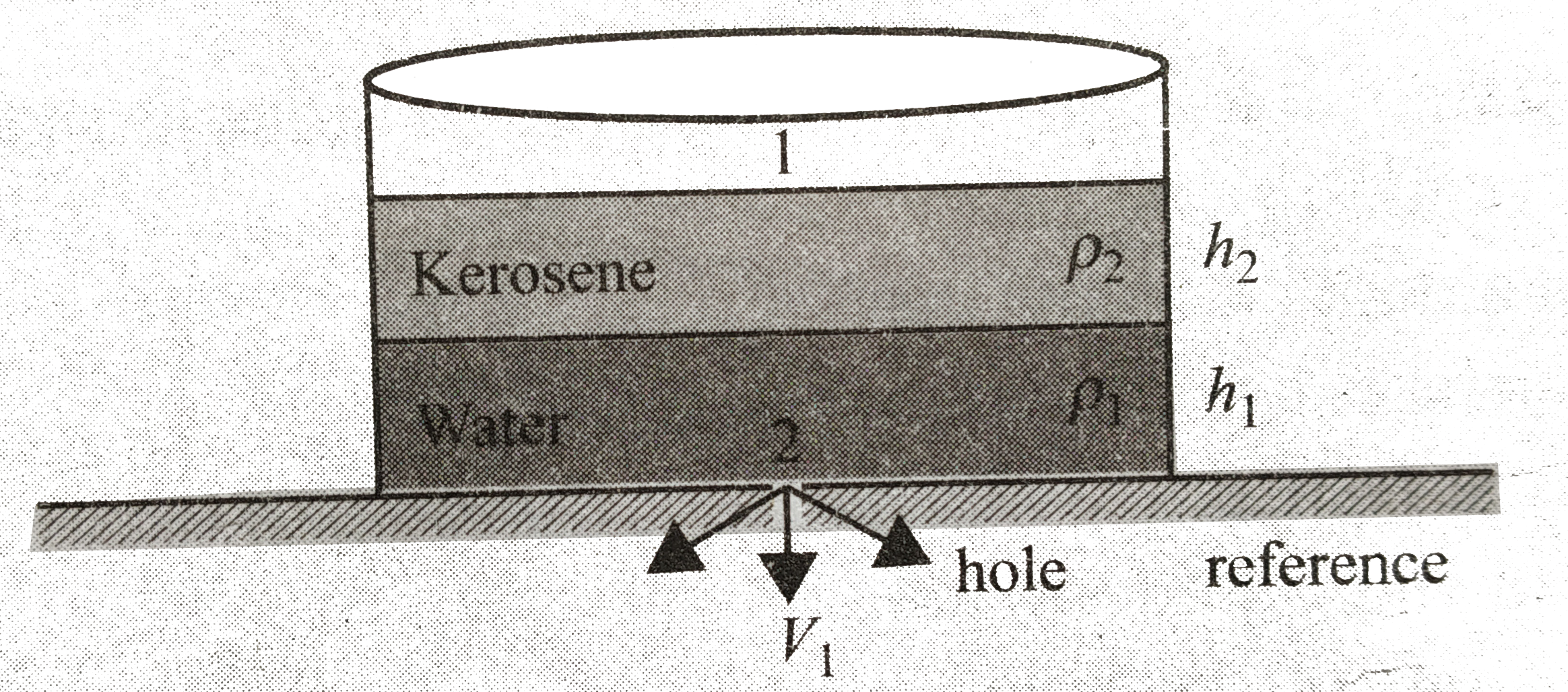Two identical flasks - one filled with water to the 500 cm3 mark, and the other filled with kerosene to the same 500 cm3 mark are measured on an electronic balance. The flask filled with water is found to weigh 620 g, and that filled with kerosene weighs 520 g. The empty flask is measured and found to be 120 g. Find the densities of water and kerosene.
To find the densities of water and kerosene in the given problem, we can follow these steps:
Step 1: Identify the given information
- Volume of water (V_water) = 500 cm³
- Volume of kerosene (V_kerosene) = 500 cm³
- Weight of flask with water = 620 g
- Weight of flask with kerosene = 520 g
- Weight of empty flask = 120 g
Step 2: Calculate the mass of water
To find the mass of water, we need to subtract the weight of the empty flask from the weight of the flask filled with water.
Mass of water(mwater)=Weight of flask with water−Weight of empty flask
mwater=620g−120g=500g
Step 3: Calculate the density of water
Density is defined as mass per unit volume. We can use the mass of water and its volume to calculate the density.
Density of water(ρwater)=Mass of waterVolume of water
ρwater=500g500cm3=1g/cm3
Step 4: Calculate the mass of kerosene
Similarly, we will calculate the mass of kerosene by subtracting the weight of the empty flask from the weight of the flask filled with kerosene.
Mass of kerosene(mkerosene)=Weight of flask with kerosene−Weight of empty flask
mkerosene=520g−120g=400g
Step 5: Calculate the density of kerosene
Now, we can calculate the density of kerosene using its mass and volume.
Density of kerosene(ρkerosene)=Mass of keroseneVolume of kerosene
ρkerosene=400g500cm3=0.8g/cm3
Final Results
- Density of water = 1g/cm3
- Density of kerosene = 0.8g/cm3
---
- Volume of water (V_water) = 500 cm³
- Volume of kerosene (V_kerosene) = 500 cm³
- Weight of flask with water = 620 g
- Weight of flask with kerosene = 520 g
- Weight of empty flask = 120 g
To find the mass of water, we need to subtract the weight of the empty flask from the weight of the flask filled with water.
mwater=620g−120g=500g
Density is defined as mass per unit volume. We can use the mass of water and its volume to calculate the density.
ρwater=500g500cm3=1g/cm3
Similarly, we will calculate the mass of kerosene by subtracting the weight of the empty flask from the weight of the flask filled with kerosene.
mkerosene=520g−120g=400g
Now, we can calculate the density of kerosene using its mass and volume.
ρkerosene=400g500cm3=0.8g/cm3
- Density of water = 1g/cm3
- Density of kerosene = 0.8g/cm3
Topper's Solved these Questions
- PHYSICAL QUANTITIES AND MEASUREMENT Book:ICSEChapter:PHYSICAL QUANTITIES AND MEASUREMENT Exercise:Questions (Choose the correct option to fill in the blank)
Explore 4 Videos
- PHYSICAL QUANTITIES AND MEASUREMENT Book:ICSEChapter:PHYSICAL QUANTITIES AND MEASUREMENT Exercise:Exercises (Section I) Name the following
Explore 5 Videos
- MODEL TEST PAPERS Book:ICSEChapter:MODEL TEST PAPERS Exercise:Model Test Paper 2 (Section II)
Explore 42 Videos
- SOUNDBook:ICSEChapter:SOUNDExercise:Picture Study
Explore 4 Videos
Similar Questions
The mass of 5 litre of water is 5 kg. Find the density of water in g cm−3
View SolutionAn empty RD bottle weighs 30.5 g. When completely filled with water, it is found to weigh 60.5 g. When filled with alcohol it is found to weigh 53.5 g. What is the relative density of alcohol?
View SolutionA beaker contains 262.5cm3 of a certain liquid and weighs 420 g. If the mass of an empty dry beaker is 210 g, find the density of the liquid.
View SolutionAn empty bottle weighs 30 g. It weighs 54 g when filled with kerosene. If the volume of the bottle is 30 mL, find the density of kerosene in g/cm3 and in kg/m3
View SolutionA gas is filled in a container whose mass is 916.4 g. The mass of the gas plus container is found to be 917.64g. If the container can hold 1107 cm3 of water, find the density of the gas.
View SolutionAn empty density bottle weighs 30 g, and 54 g when filled with kerosene. If the volume of the bottle is 30 ml, find the density of kerosene in (a) g/cm3 (b)kg/m3 .Also find its RD.
View SolutionA body weighs 550 gf in air and 370 gf in water when it is completely immersed in water. Find the volume of the body. (density of water = 1 g cm−3 )
View SolutionA wide vessel with a small hole in the bottom is filled with water and kerosene. Find the velocity of water flow if the thickness of water layer is h1=30cm and that of kerosene is h2=20cm brgt

View SolutionA tank 5 m high is half filled with water and then is filled to top with oil of density 0.85g/cm3 The pressure at the bottom of the tank, due to these liquids is
View SolutionA solid weighs 32 gf in air and 28.8 gf in water.
Find the weight of solid in a liquid of density 0.9g cm−3
View Solution

